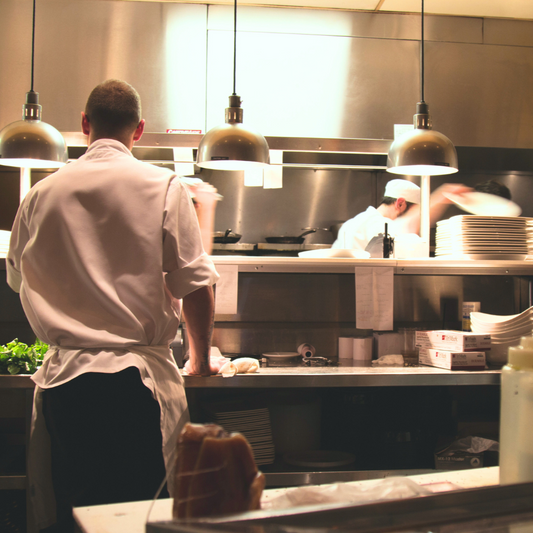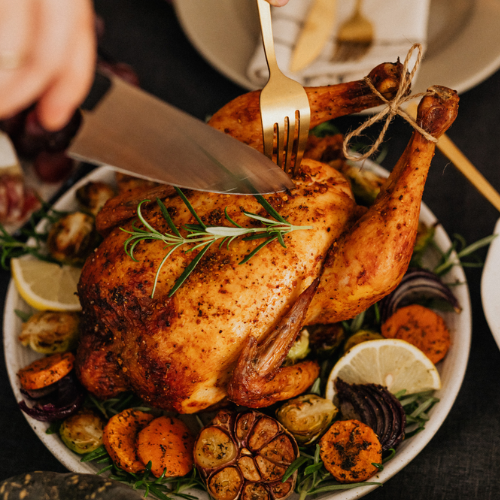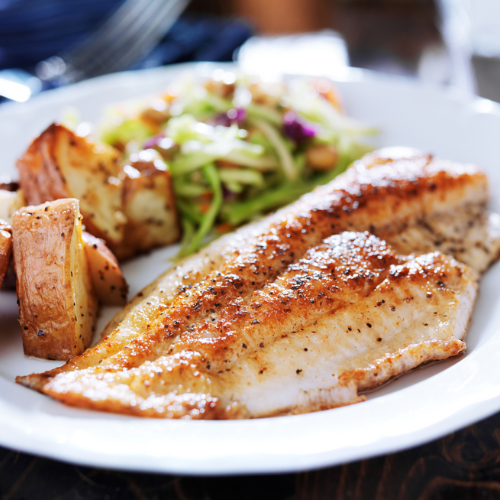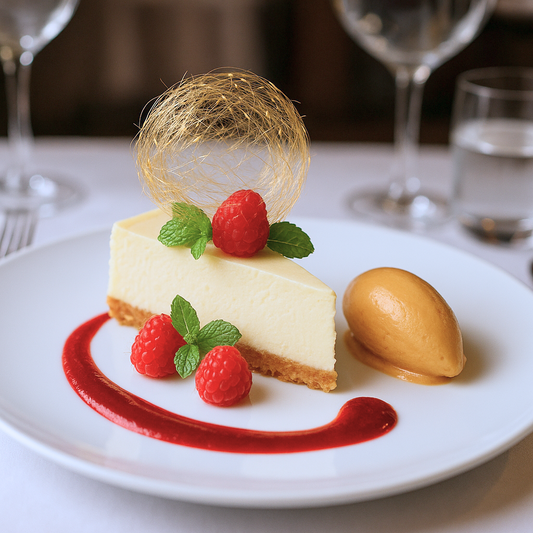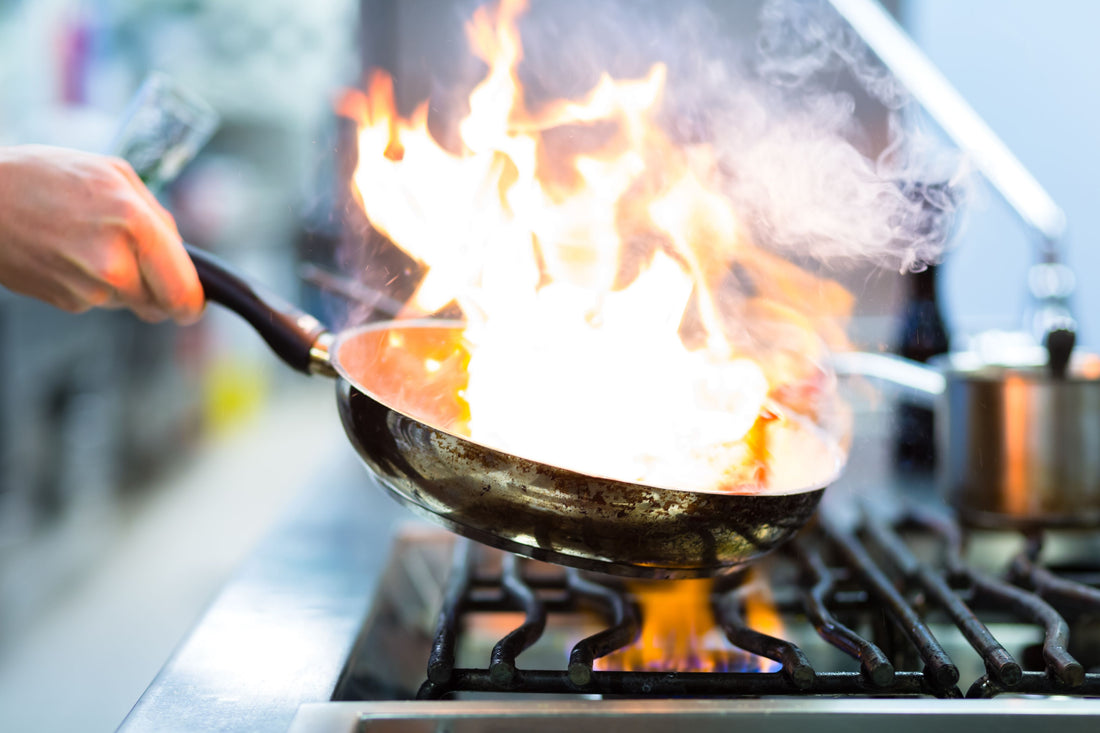
Expert Advice for Aspiring Chefs
Share
Cooking is an art, a science, and a passion. For aspiring chefs, a career in a professional kitchen may feel out of reach, but every journey starts with a first step, and education is usually that first step. Whether you are just starting or looking to refine your skills, having the right education and knowledge and standing out from the crowd can make all the difference. In this post, we will explore expert culinary advice that will elevate your cooking game. From mastering knife skills to understanding flavour profiles, these insights will help you become a more confident and creative cook.
Start by mastering the basic principles of cookery
When you start your culinary career, it's not about being creative and developing your dishes; there will be plenty of time for that later on. Concentrate on learning and mastering all the basics and serving the dishes that you are responsible for as the basis of building a culinary career, then, as you gain more experience, you will be able to start to be more creative and experiment with dishes because you have already mastered the principles of cookery.
Cooking Techniques to Master
Choosing and understanding the right method of cookery is a vital skill for all cooks. Different cooking techniques can dramatically change the outcome of your dish. Culinary Solutions Academy courses cover all the principal methods of cookery, including:
- Boiling
- Grilling
- Shallow frying
- Deep frying
- Roasting
- Braising
- Stewing
- Baking
- Steaming
- Sous vide
By understanding these techniques, you will be ready for your first role in a professional kitchen and be in a position to impress at an interview.
Mastering Knife Skills
One of the first skills every aspiring chef should focus on is knife skills. A good knife is your best friend in the kitchen. Here are some essential tips to improve your knife skills:
- Choose the Right Knife: Invest in a good chef's knife. It should feel comfortable in your hand and be well-balanced. A sharp knife is safer than a dull one, as it requires less force to cut through food.
- Practice Proper Grip: Hold the knife with your dominant hand and use your other hand to guide the food. Keep your fingers curled under to avoid accidents.
- Learn Basic Cuts: Familiarise yourself with basic cuts like dicing, julienne, and chiffonade. Each cut has its purpose and can change the texture and presentation of your dish.
- Use a Cutting Board: Always use a stable cutting board with a damp cloth underneath to prevent slipping. A wooden or plastic board is ideal. Avoid glass or ceramic boards, as they can dull your knife.
By mastering these knife skills, you will not only improve your efficiency but also enhance the overall quality of your dishes.
Understanding Flavour Profiles
Flavour is the heart of cooking. Knowing how to balance flavours can transform a simple dish into something extraordinary. Here are some tips to help you understand flavour profiles:
- The Five Basic Tastes: Familiarise yourself with the five basic tastes: sweet, sour, salty, bitter, and umami. Each taste plays a role in creating a well-rounded dish.
- Use Fresh Ingredients: Fresh herbs, spices, and produce can elevate the flavour of your meals. Whenever possible, choose seasonal ingredients for the best taste.
- Experiment with Seasoning: Don’t be afraid to experiment with different herbs and spices. Start with small amounts and adjust to your taste. Remember, you can always add more, but you can’t take it away.
- Balance is Key: Aim for balance in your dishes. If something is too salty, add a touch of sweetness. If it’s too sweet, a splash of acidity can help.
- Taste: Eat and taste the style of food you are studying and learning, French European cookery.
Plating and Presentation
The visual presentation of food is often the first invitation to enjoy a dish—it sets the stage for the entire dining experience. A well-presented plate not only stimulates the senses but also builds anticipation and heightens expectations.
Thoughtful use of colour, shape, and plating, along with the careful selection of serving dishes, all contribute to a balanced and visually appealing presentation.
- Think About Colour: Incorporate a variety of colours in your dish. A colourful plate is more appealing and can make the meal feel more exciting.
- Use Height: Create height in your plating by stacking ingredients or using a ring mould. This adds dimension and interest to your presentation.
- Garnish Thoughtfully: A simple garnish can elevate your dish. Fresh herbs, edible flowers, or a drizzle of sauce can add a finishing touch.
The right style of presentation can make even the simplest dish look professional and appealing.
Time Management in the Kitchen
Time management is crucial in the kitchen; there is a lot to get done and a great need to coordinate with the other cooks and chefs around you. Here are some strategies to help you stay organised:
- Mise en Place: This French term means "everything in its place." This is the food preparation that is performed before the service period starts.
-
Make a List: At the start of your shift, make and use a list of the tasks you need to perform, and work through that list as your shift progresses.
- Clean as You Go: Keep your workspace tidy by cleaning up as you prepare and cook. This will make the process smoother and more enjoyable.
- Communicate: Stay in good communication with other cooks, chefs and your supervisors about your progress, what you have already prepared, and if you are running late and may not be able to get all the preparation done without help.
The Importance of Study
Cooking is both a practical skill and a bank of theoretical knowledge. Cooks and chefs can only do what they do because they have a solid understanding of each cookery process and the practical skills to implement those cookery methods. To get started and build a culinary career, treat the Culinary Solutions Academy courses as a unique study opportunity to get a head start on learning the theoretical knowledge that will form the basis of all your practical skills
- Take notes: Use the course notes document in each course and add your notes to that document to create your library of professional cookery and hospitality knowledge.
- Create a portfolio: Keep all your notes, certificates, documents and even multimedia photos and videos of your cookery education in a well-put-together portfolio that you can use to showcase your efforts and education
- Be a self-starter: A culinary career does not just fall from the sky for you; you have to make it happen. Culinary education is the first step to making it happen, and to building a culinary career with all the opportunities that go along with being a professional cook or chef.
Final Thoughts on Your Culinary Journey
Becoming a skilled chef takes time, patience, and a willingness to learn. By mastering cooking techniques, knife skills, understanding flavour profiles, and embracing study, you build a real culinary career with local and international possibilities.
As you embark on this culinary journey, keep an open mind and enjoy the process. Cooking is not just about the result; it is about the joy of creating and sharing delicious meals. So, roll up your sleeves, get started on these culinary courses, and let your culinary adventure begin!

